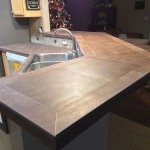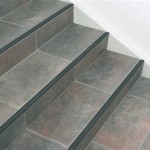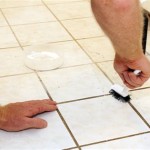Choose The Right Shower Tile Thickness For Your Home Floor
When it comes to choosing the right shower tile thickness for your home floor, there are a few essential aspects to consider. These aspects include the type of tile, the size of the tile, the weight of the tile, and the amount of foot traffic the shower will receive. By considering these factors, you can choose the right tile thickness that will meet your needs and last for years to come.
The type of tile you choose will play a role in determining the thickness of the tile. Ceramic tiles are typically thinner than porcelain tiles, and natural stone tiles are typically thicker than both ceramic and porcelain tiles. The size of the tile will also affect the thickness. Smaller tiles are typically thinner than larger tiles. The weight of the tile is another factor to consider. Heavier tiles will require a thicker base to support them. Finally, the amount of foot traffic the shower will receive will also affect the thickness of the tile. A shower that will receive a lot of foot traffic will require a thicker tile than a shower that will only be used occasionally.
By considering these factors, you can choose the right shower tile thickness for your home floor. The right tile thickness will help ensure that your shower floor is durable and lasts for years to come.
## Essential Aspects to Consider ### Type of TileThe type of tile you choose will play a role in determining the thickness of the tile. Ceramic tiles are typically thinner than porcelain tiles, and natural stone tiles are typically thicker than both ceramic and porcelain tiles.
Ceramic tiles
are made from clay and are fired at a high temperature. They are a popular choice for showers because they are durable and easy to clean. Ceramic tiles are typically thinner than porcelain tiles, but they are still strong enough to withstand the wear and tear of a shower.Porcelain tiles
are made from a finer clay than ceramic tiles and are fired at a higher temperature. This makes them more durable and less porous than ceramic tiles. Porcelain tiles are also typically thicker than ceramic tiles.Natural stone tiles
are made from natural stone, such as marble, granite, or slate. They are a beautiful and durable choice for showers, but they are also more expensive than ceramic or porcelain tiles. Natural stone tiles are typically thicker than ceramic or porcelain tiles. ### Size of TileThe size of the tile will also affect the thickness. Smaller tiles are typically thinner than larger tiles. This is because smaller tiles have less surface area to support, so they do not need to be as thick.
Small tiles
are typically less than 4 inches square. They are a good choice for small showers or for showers with intricate designs.Medium tiles
are typically between 4 and 8 inches square. They are a good choice for most showers.Large tiles
are typically more than 8 inches square. They are a good choice for large showers or for showers with simple designs. ### Weight of TileThe weight of the tile is another factor to consider. Heavier tiles will require a thicker base to support them. This is because a thicker base will help to distribute the weight of the tile more evenly.
Lightweight tiles
are typically less than 5 pounds per square foot. They are a good choice for showers with weak floors.Medium-weight tiles
are typically between 5 and 10 pounds per square foot. They are a good choice for most showers.Heavyweight tiles
are typically more than 10 pounds per square foot. They are a good choice for showers with strong floors. ### Amount of Foot TrafficThe amount of foot traffic the shower will receive will also affect the thickness of the tile. A shower that will receive a lot of foot traffic will require a thicker tile than a shower that will only be used occasionally.
Light foot traffic
is less than 10 people per day. A shower that receives light foot traffic can use a thinner tile.Medium foot traffic
is between 10 and 20 people per day. A shower that receives medium foot traffic can use a medium-thickness tile.Heavy foot traffic
is more than 20 people per day. A shower that receives heavy foot traffic should use a thicker tile.
How To Choose Shower Tile Best Tiles For Floors Walls

Types Of Tiles The Home Depot

Best Tiles For Shower Walls And Floors Modernize

How To Choose Shower Tile Best Tiles For Floors Walls

A Guide To Bathroom Flooring Materials Designcafe

How To Choose The Right Tiling Trowel Tile Mountain

Choosing The Right Trowel Size For Tile Complete Guide

9 Tips To Select The Best Bathroom Wall Tiles For Your Home

6 Mistakes To Avoid With Shower Tile Daltile

Shower Designs Featuring Large Format Tiles Daltile
Related Posts








